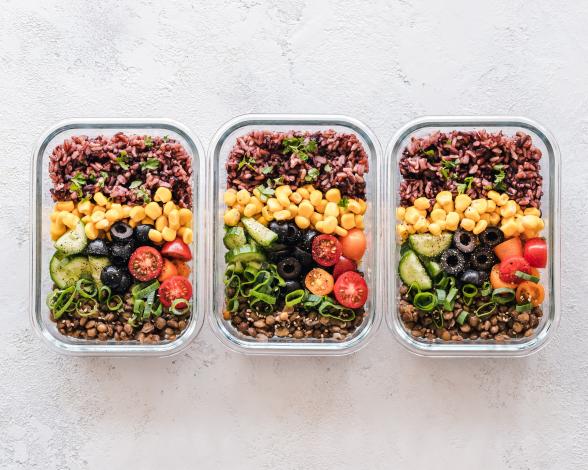Dieting and Counting Macros
This post contains references to products from one or more of our advertisers. We may receive compensation when you click on links to those products. Terms apply to the offers listed on this page. For an explanation of our Advertising Policy, visit this page.
Counting macros can be time consuming - don’t overdo it.
As you begin learning about how to eat healthy and to fix your diet, you will start hearing about figuring out how much protein, carbohydrates (carbs), and fat you should be eating. When you hear the term “counting macros,” it is referring to calculating these numbers in the food that you are eating. Determining the number of macros that you should be eating vs what you are eating is a lot of work.
If you’re just beginning to get your diet in order, you should not worry too much about these numbers. The top thing you should be worried about is how many calories you are eating vs how many calories you should be eating. If you should be eating 2000 calories a day, then focus on eating 2000 calories (or less) a day in order to lose weight - counting macros is not going to significantly make a difference in your initial weight loss.
As you get into shape, and get to a weight that you feel comfortable with, looking at your macros is something that you can begin to do a bit more. However, there’s absolutely no reason to overdo it. If you’re going to try to be a bodybuilder, or some other professional where your body has to look perfect, then you may need to worry more about the macros that you’re getting in your body - for most people that’s not the case.
The top macro that you should start to figure out is how much protein that you’re getting into your body. Protein is an important macro because protein will make you feel fuller, and it will help you to build muscle. Even if your goal isn’t to build muscle, you should still make sure you’re getting enough protein so that you’re not hungry all the time.
If you’re not looking to build muscle (just lose weight), then you should aim to get .5 gram of protein per pound of body weight that you’re trying to achieve. So if your goal is to get to 200 pounds, then you should aim for 100g of protein per day. If you want to build muscle, then you should be aiming for closer to 1 gram of protein per pound of body weight, or 200g of protein in our example. While this may seem like a lot of protein, it’s actually not too hard to achieve.
There are plenty of foods to get protein in besides just meat. Egg whites, beans, and spinach are a few simple examples of foods that have good amounts of protein in them - there are lots of others as well. When you’re trying to figure out which foods to eat, find items that have lower calories, and have plenty of protein per serving when you can. You’ll find that you can get your protein in without issue.
By focusing your macros on protein, your other macros will simply fall into place and they’ll be generally in place where they should be. You don’t have to worry about eating too many carbs or too much fat. Focus on calories and protein and eat whatever the other values end up being - you’ll find that you’re likely eating plenty of the other macros.
At some point, you may want to start looking closer at your other macros, but it can be overwhelming to start, and it will not be important to lose weight and get down to a healthy weight. Focus on calories and protein in order to lose weight and to fuel your body with healthy foods.
Don’t overdo your diet - it doesn’t have to be complicated. Start simply, get yourself to where you want to be, and then learn about the macros as you go along.





